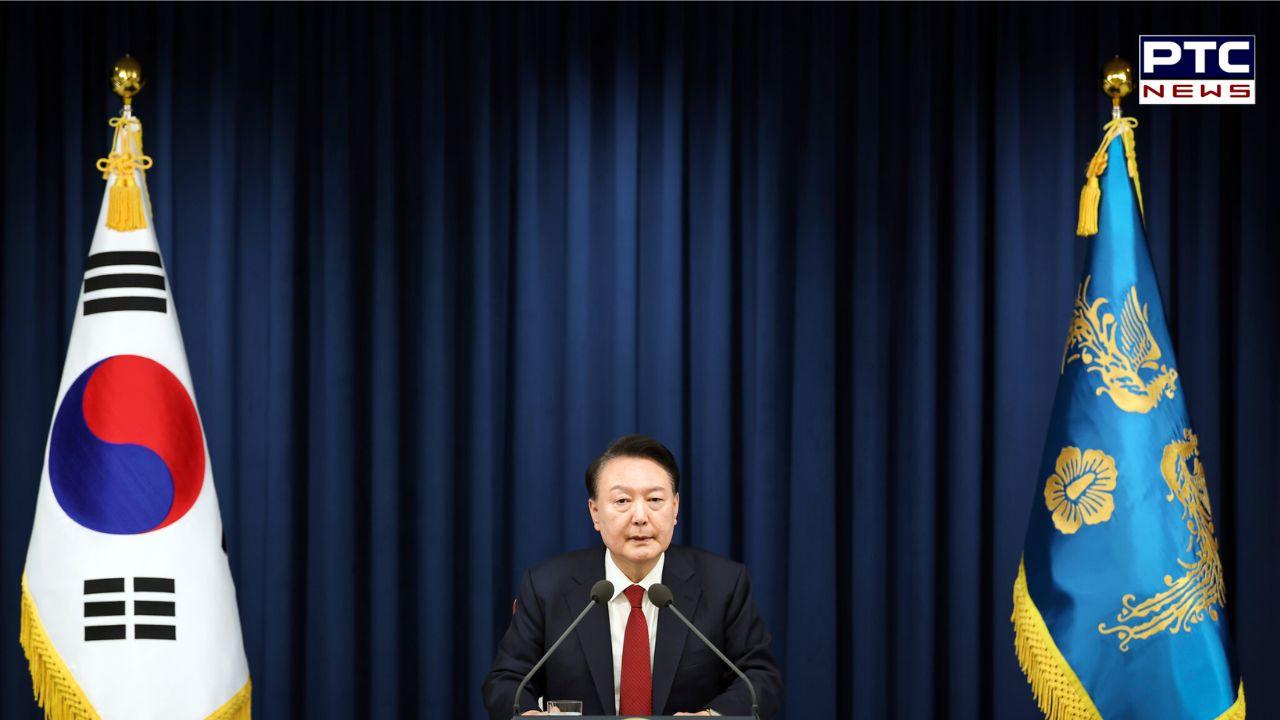

South Korea’s President imposes martial law, reverses decision within hours amid backlash | Explained
South Korea martial law news: In a dramatic and unprecedented turn of events, South Korean President Yoon Suk Yeol declared martial law late Tuesday night, accusing opposition forces of threatening the country’s democracy. However, within six hours, Yoon reversed his decision after facing united political and public opposition, marking a significant moment in the nation's modern history. This marks the first imposition of martial law in South Korea in over four decades, followed by its swift revocation.
What is martial law, and why was it declared?
Martial law involves the suspension of normal governance and the imposition of direct military control over civilian functions, usually during emergencies. In a late-night emergency broadcast, South Korean President Yoon announced the implementation of martial law, citing “anti-state activities” by opposition parties that he claimed were paralysing the government. He described the move as essential to protect South Korea’s liberal democracy and counter threats from North Korea, though specific evidence for these claims was not provided.
The martial law order, enforced by Army Chief General Park An-su, included a six-point decree. It banned political parties and activities, prohibited strikes, and outlawed public gatherings deemed to incite unrest. Media outlets were placed under military control, and striking medical staff were directed to resume work within 48 hours. These measures evoked memories of South Korea’s authoritarian past, last seen during the 1980s military dictatorship.
The context behind the declaration
Yoon’s declaration came amid a heated budget conflict with the opposition Democratic Party. The opposition had cut 4.1 trillion won ($2.8 billion) from Yoon’s proposed 677 trillion won budget for 2025, prompting the president to accuse them of undermining the nation’s core functions. While the budget row provided immediate context, critics questioned whether it justified such an extreme measure.
The declaration of martial law sparked immediate condemnation. Security forces temporarily sealed the National Assembly, with troops entering the building to prevent lawmakers from convening. However, 190 lawmakers managed to gather and unanimously voted to reject the martial law order, calling for its immediate repeal.
Protests erupted outside parliament, where hundreds of citizens chanted slogans demanding Yoon’s arrest. Scuffles broke out between protesters and military personnel, although no significant injuries were reported. A symbolic moment occurred when a woman attempted to disarm a soldier, shouting, “Aren’t you embarrassed?”
Why did Yoon reverse his decision?
South Korea’s constitution requires parliamentary approval for martial law to remain in effect. Despite initial military statements suggesting martial law would persist until the president rescinded it, overwhelming political and public backlash forced Yoon to relent.
Opposition leader Lee Jae-myung, who narrowly lost to Yoon in the 2022 presidential election, condemned the declaration as “illegal and unconstitutional.” Members of Yoon’s own conservative People Power Party criticised the move as a mistake, with some describing it a “tragic misstep.” By early Wednesday morning, Yoon announced that troops would return to their barracks and martial law would be lifted following a cabinet meeting.
International reactions
The international community expressed both concern and relief. The White House welcomed Yoon’s reversal, emphasising that democracy is a cornerstone of the US-South Korea alliance. The US, which maintains 28,500 troops in South Korea as a deterrent against North Korea, had earlier expressed “grave concern” over the developments.
- With inputs from agencies
